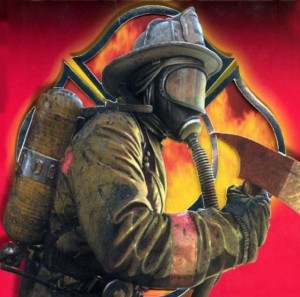The justices will decide how much time plaintiffs have to file a lawsuit when they believe they’ve been unfairly penalized by hiring tests.

The Supreme Court plunged back into the legal fight over firefighters, test scores and accusations of racial discrimination today, this time to decide how long disappointed candidates have to file a lawsuit.
At issue is whether the civil rights plaintiffs must file a discrimination suit soon after the test was given, or whether they can wait until later, after it was used in hiring new firefighters.
Four years ago, a federal judge in Chicago ruled the city had discriminated against black candidates because its test given in the mid-1990s had an unfair and “disparate impact” on minorities. White test takers were five times more likely than blacks to qualify for a firefighting job, the judge found.
But last year, the U.S. 7th Circuit Court of Appeals overturned this ruling and threw out the suit, brought on behalf of 6,000 black applicants, because they had waited more than a year to challenge the test results. “That was a fatal mistake,” wrote Judge Richard Posner, because the federal civil rights law says suits must be filed within 300 days of an unlawful employment practice.
This is similar to the issue that arose in the case of Lily Ledbetter, an Alabama woman who discovered she had been paid less than her male co-workers but lost in the Supreme Court because she had waited too long to sue. Congress changed the law earlier this year, but the new law affects only suits over unfair pay.
The Supreme Court said today it will hear an appeal brought on behalf of the black firefighter candidates in Chicago. The plaintiffs say the clock on discrimination suits should begin ticking only when an employer uses a disputed test to make hiring decisions.
U.S. Solicitor General Elena Kagan had urged the court to hear the case of Lewis vs. Chicago to clarify the deadlines for filing discrimination claims.
“This case will determine whether job applicants that a court has determined are victims of discrimination will be denied an effective remedy,” said John Payton, president of the NAACP Legal Defense Fund. “The Supreme Court should apply a common-sense reading of [the law] and hold that discrimination each time an employer uses a selection practice that unfairly excludes qualified African American applicants for a job.”
It is not clear the high court will consider the merits of the underlying discrimination.
In June, the court in a 5-4 decision ruled in favor of mostly white firefighters from New Haven, Conn., who said they were victims of illegal discrimination because the city had thrown out a promotional exam after they earned top scores. In that case, the city said it worried about being sued by disappointed black candidates who believed the test did not fairly measure who would do well as a firefighter.
The issue came to national prominence last summer during the confirmation hearings for Justice Sonia Sotomayor, who as an appeals court judge had ruled against the white firefighters in the New Haven case.